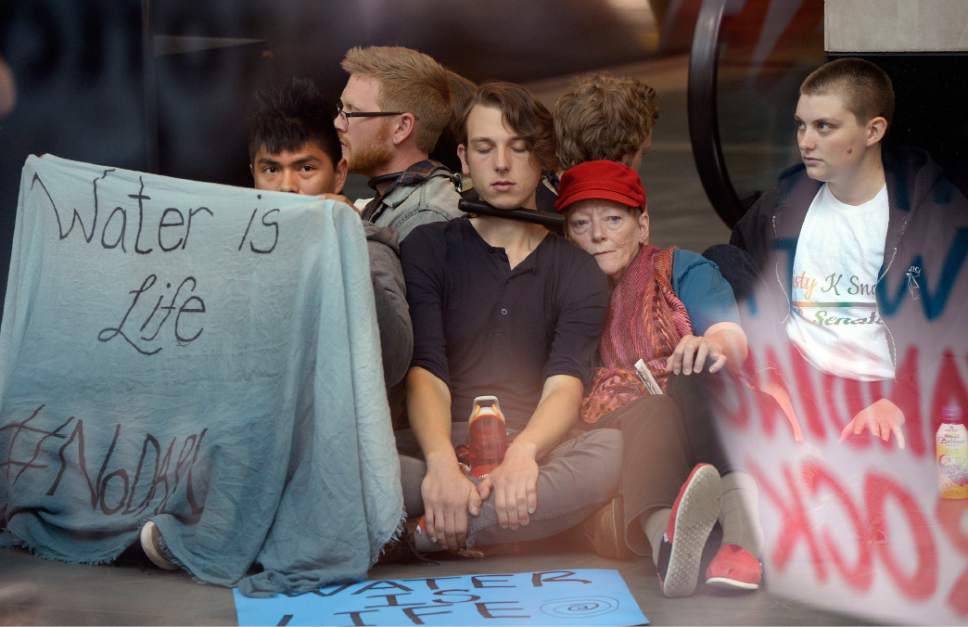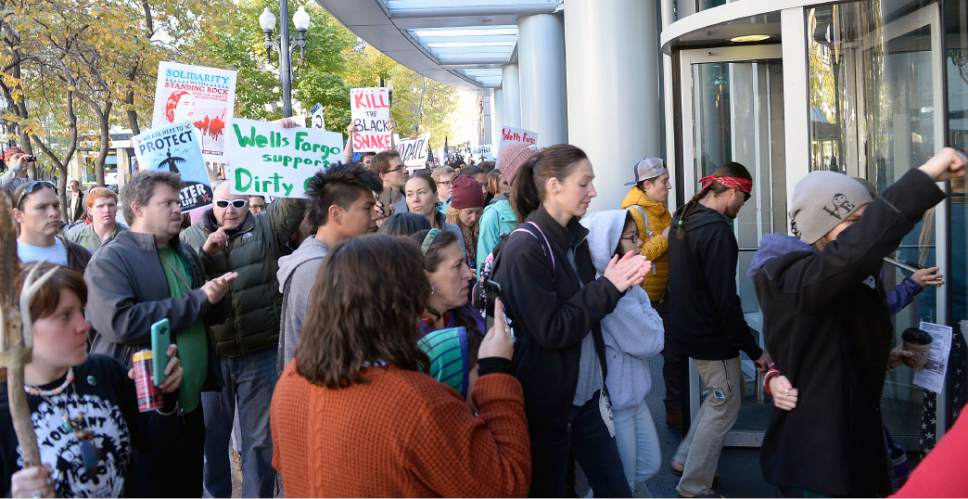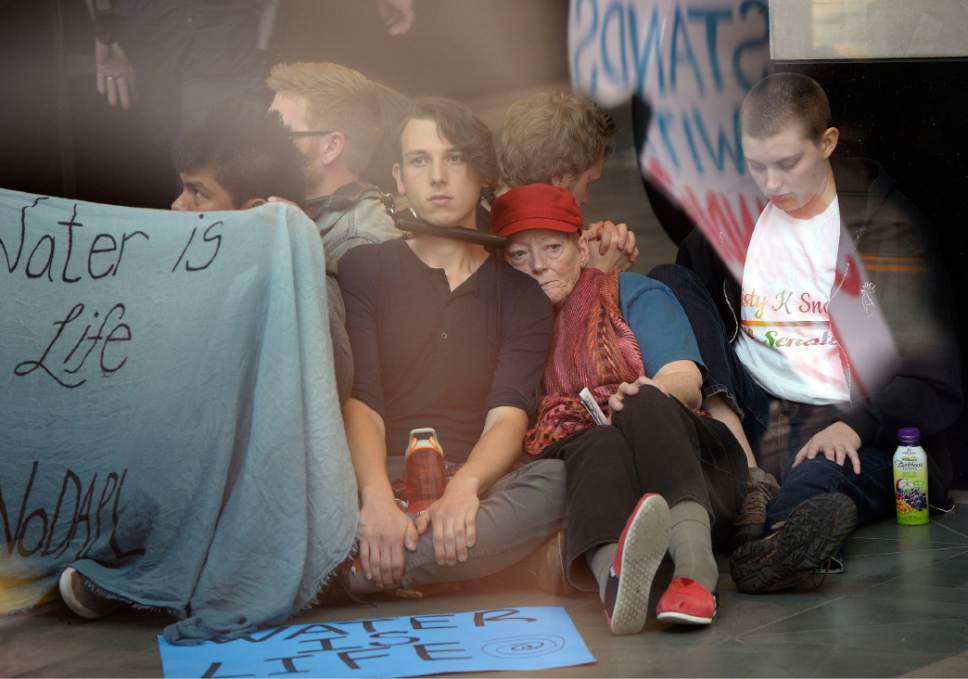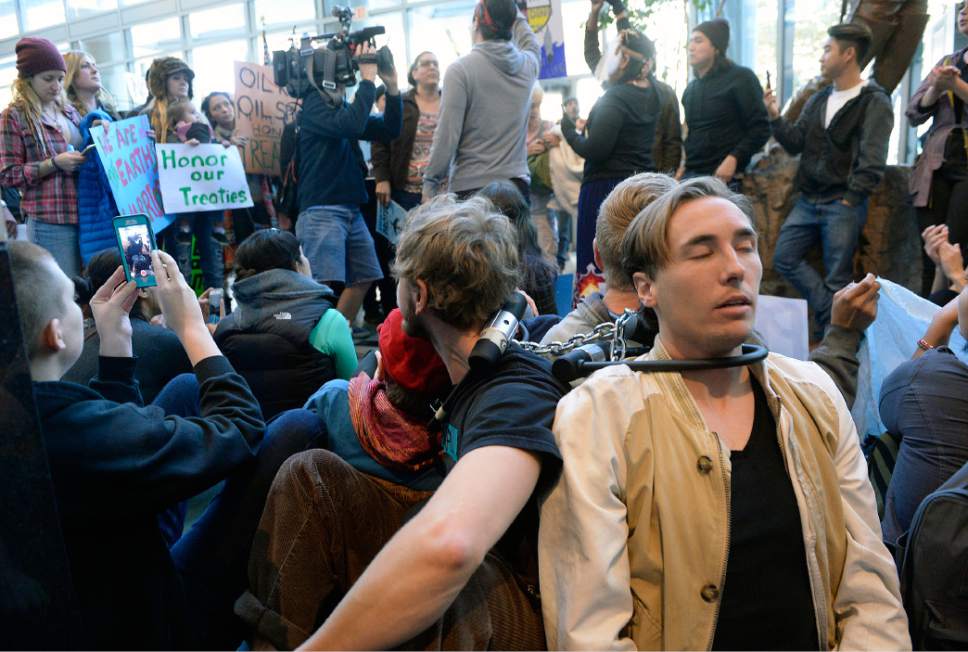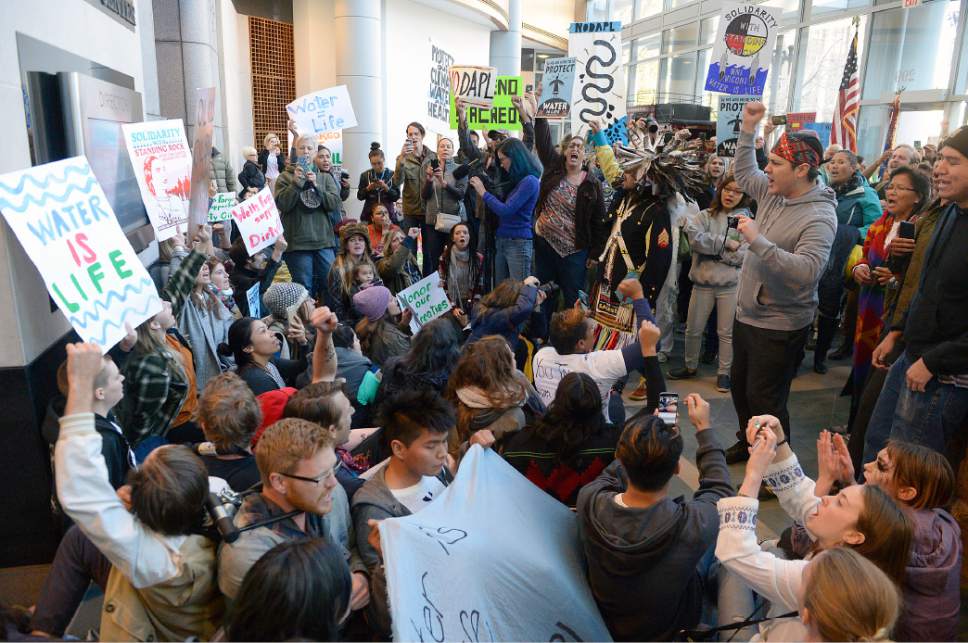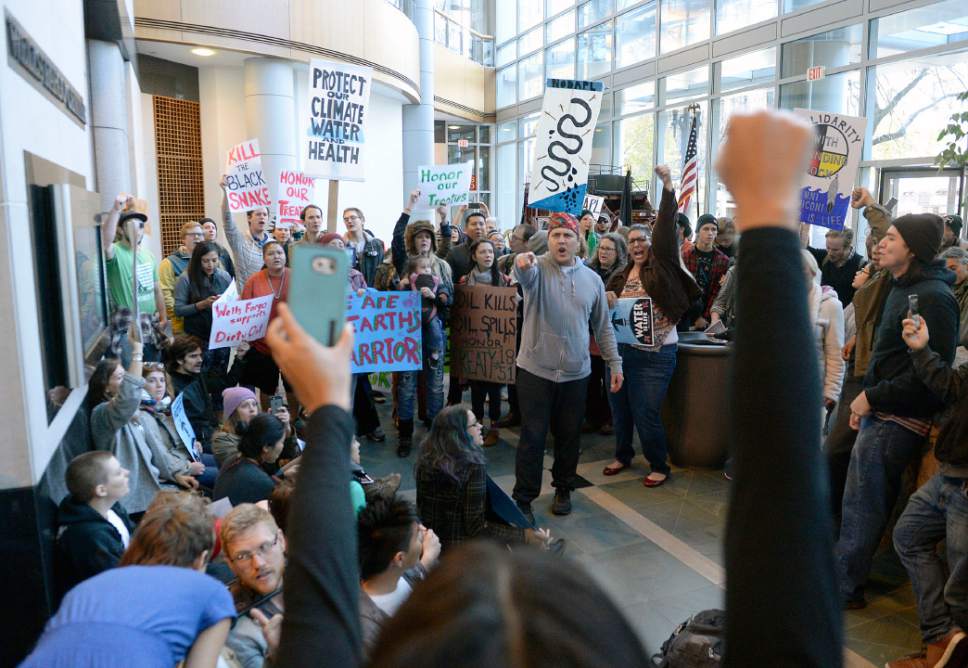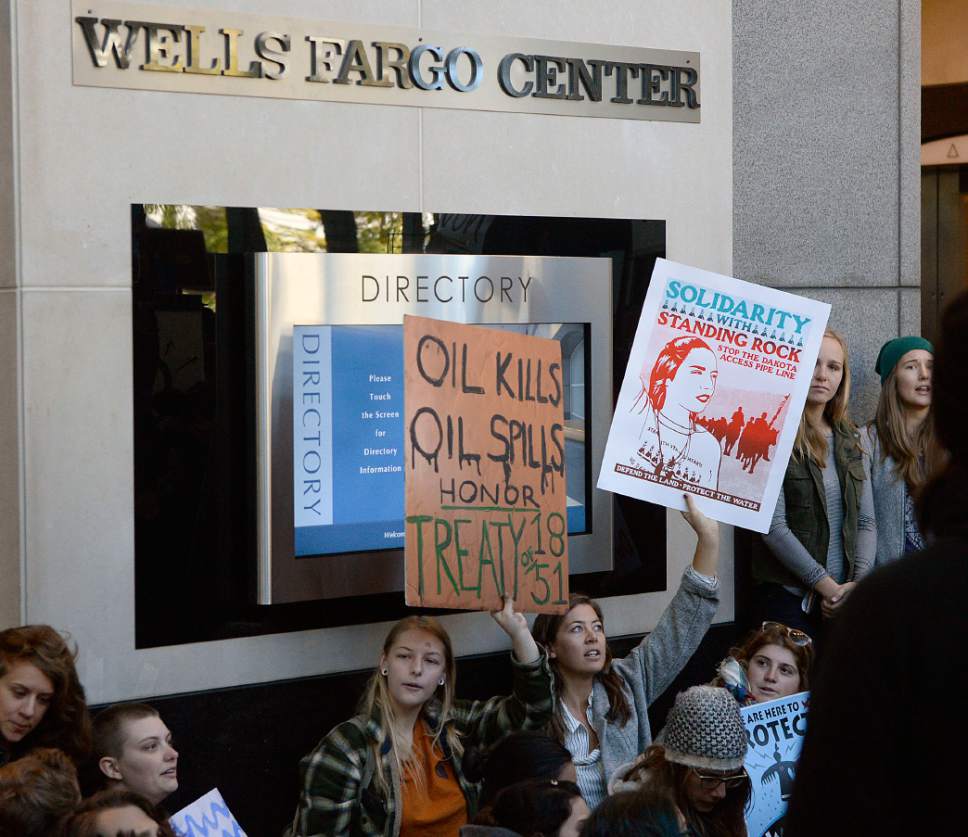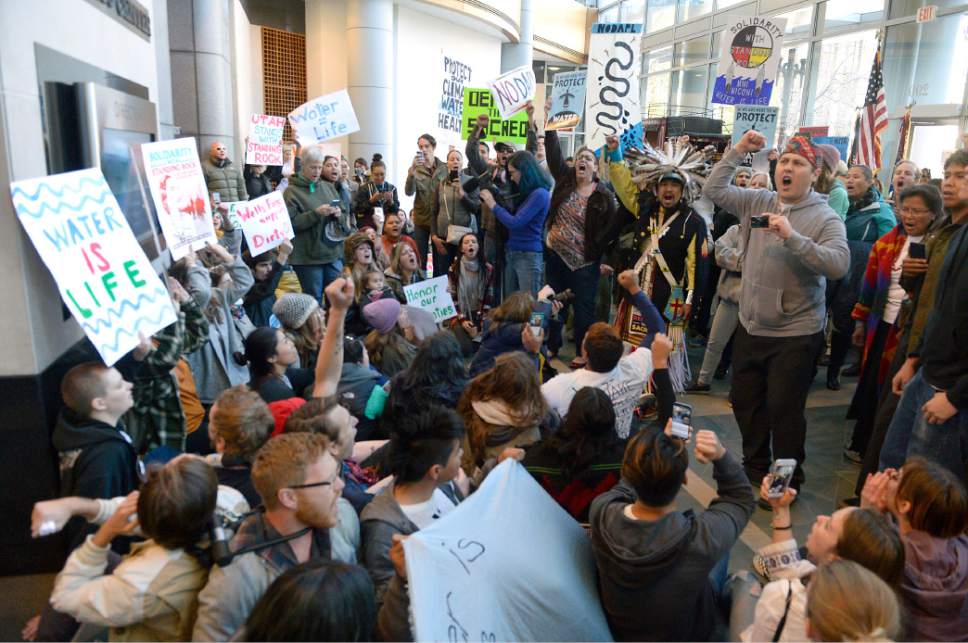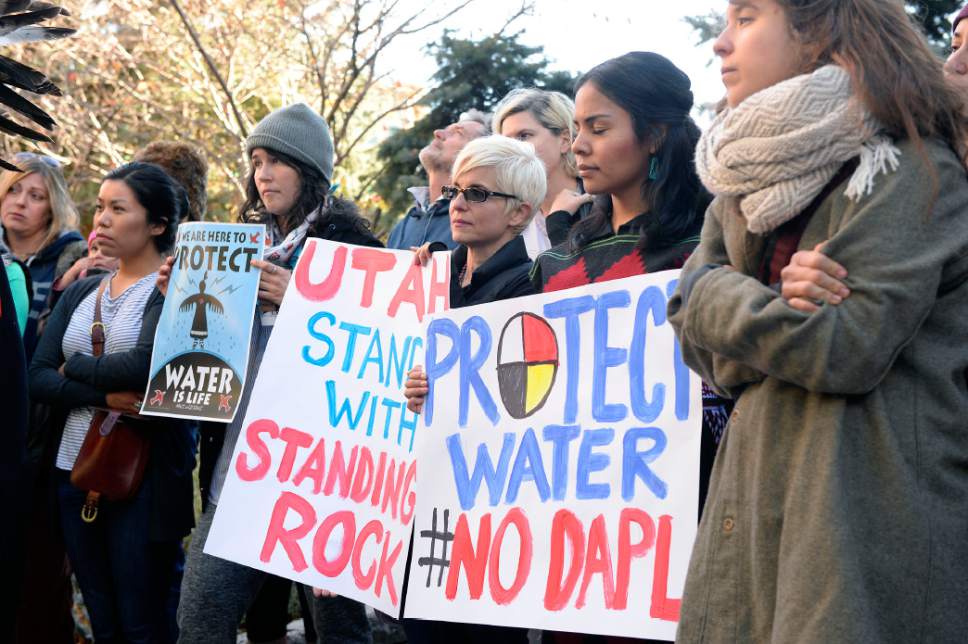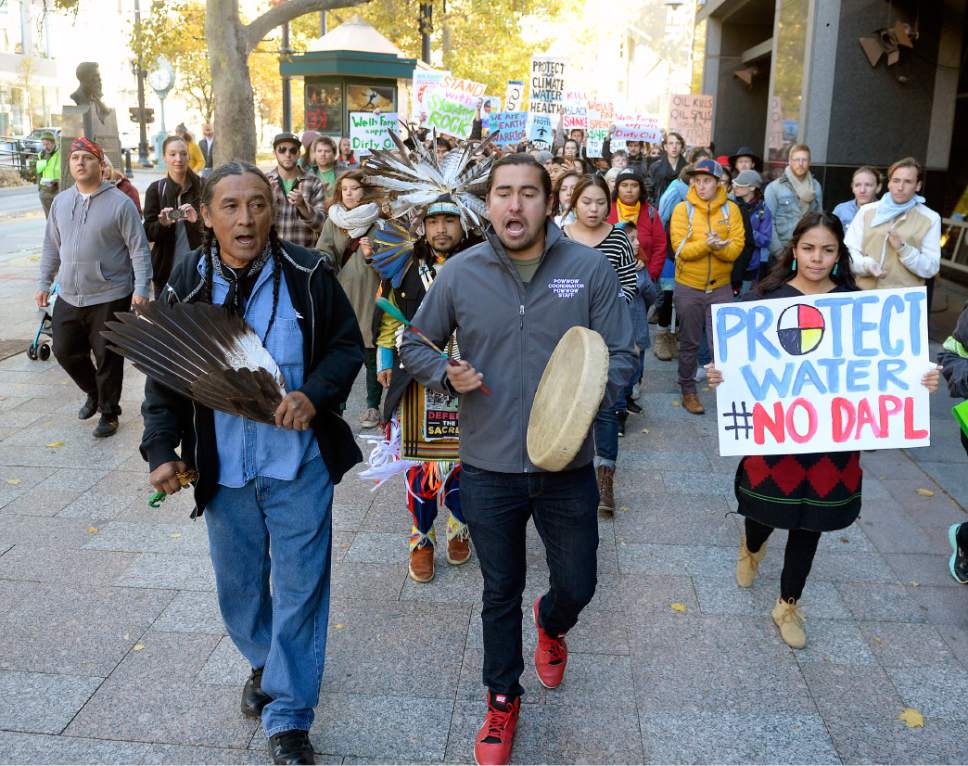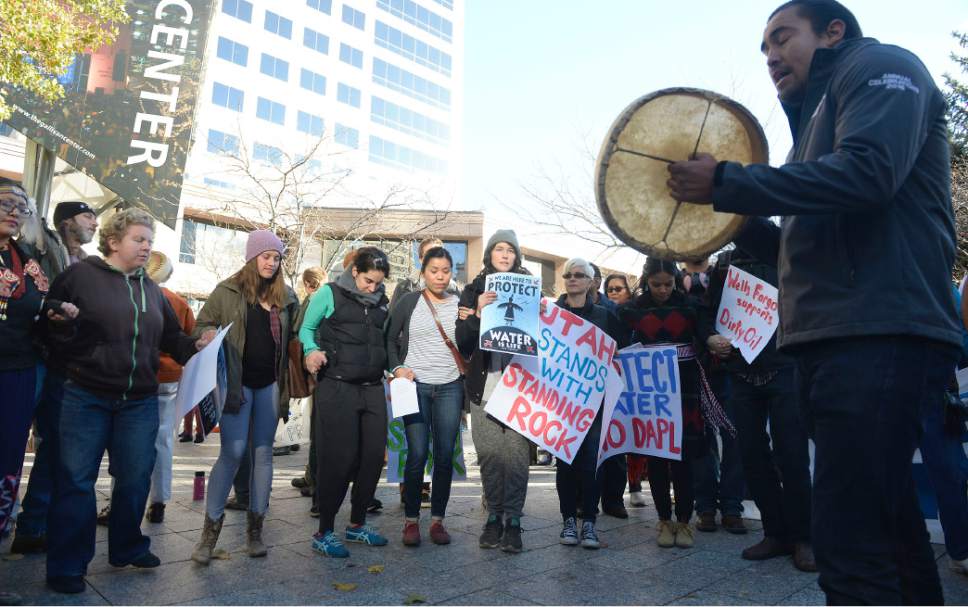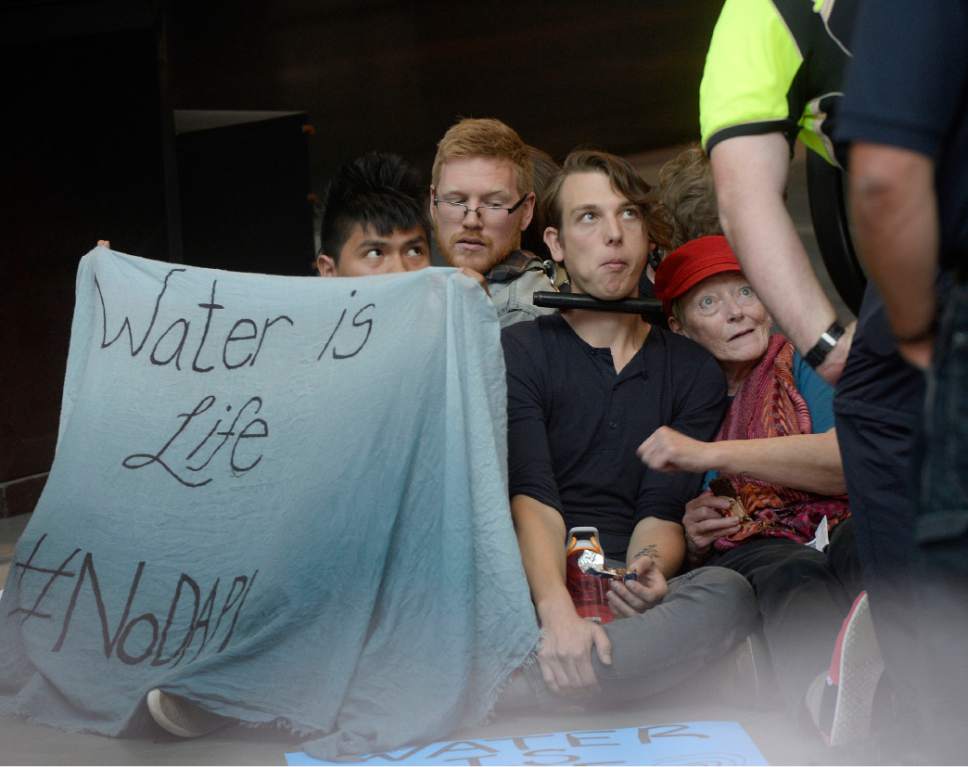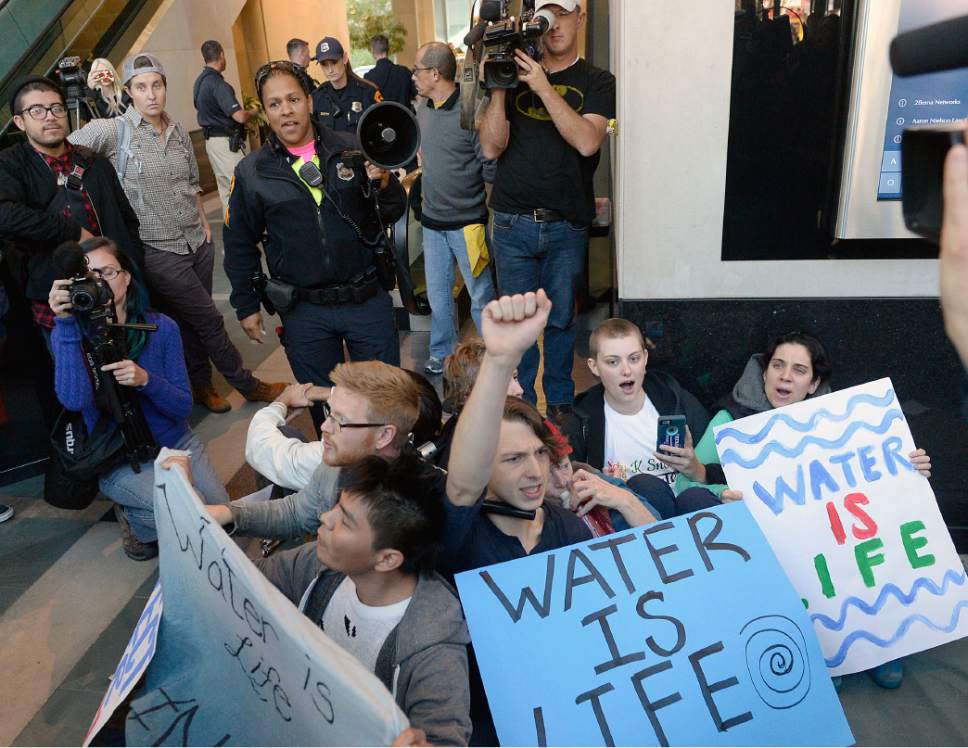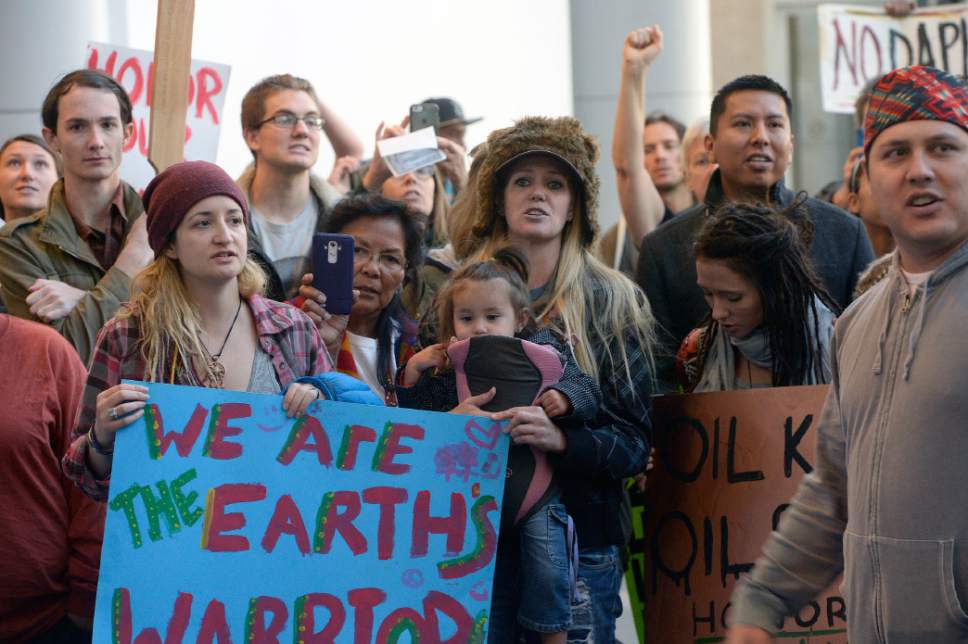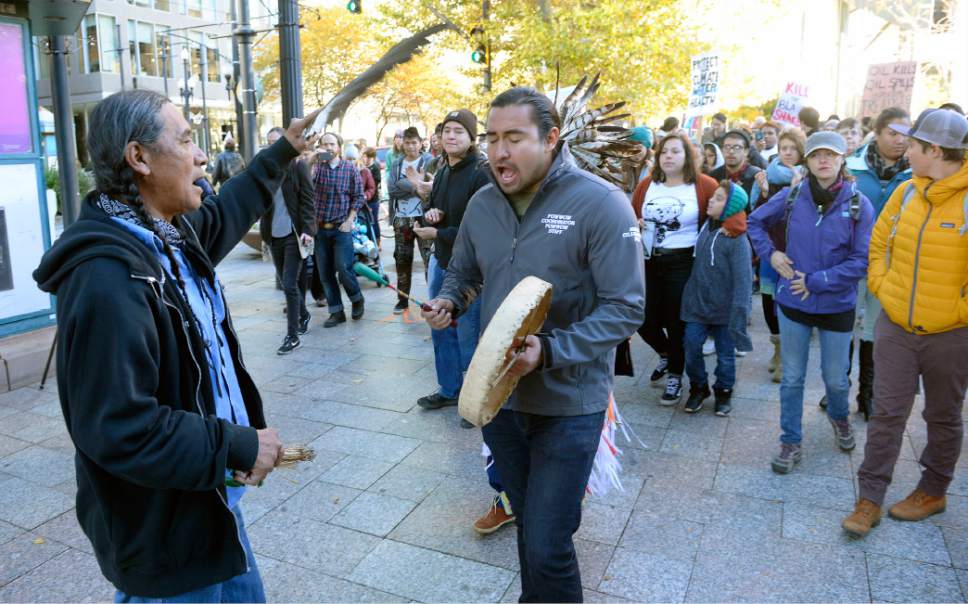This is an archived article that was published on sltrib.com in 2016, and information in the article may be outdated. It is provided only for personal research purposes and may not be reprinted.
More than 100 protesters packed into the lobby of a downtown Salt Lake City bank building Monday morning, speaking out against an oil pipeline under construction between the North Dakota oil fields and Illinois. Utah activists and American Indians proclaimed solidarity with members of the Standing Rock Sioux Nation who are trying to block construction of the pipeline across land they contend belongs to the Sioux by treaty.
Eight who joined themselves together with U-locks around their necks and twined arms were arrested after they refused police orders to disperse. Chanting "water is life," demonstrators prayed, celebrated the sanctity of the lands that could be imperiled by the pipeline, and decried the treatment of Standing Rock activists at the hands of police as they broke up a blockade in North Dakota on Thursday.
"We are peaceful, we are unarmed, not violent. When this began the elders asked us to remain in prayer and do it peacefully, and we have done that. Unfortunately the Morton County [N.D.] sheriff has put out a bunch of lies, calling us rioters, calling us terrorists," said Navajo activist Jamie Gordon as the demonstration was winding down. "It's ridiculous; they are putting people in dog kennels — elders, teenagers."
Gordon was en route to North Dakota in support of the anti-pipeline protest in the wake of an ugly confrontation with local authorities. Outside Cannon Ball, N.D., just north of the reservation, police hauled more than 140 to jail after subjecting activists to bean-bag bullets, mace, loud noises and rough treatment.
"They are not protesters. They are protectors, they are land defenders," said Salt Lake City activist Natascha Deininger of Wasatch Rising Tide.
Organizers of Monday's Salt Lake City event said they targeted Wells Fargo because of the bank's $467 million investment in the pipeline, under development by a firm called Energy Transfer Partners.
"The main thing is social justice, 100 years of suppressing indigenous people. This is their land. Everything we see on it is what white colonizers have chosen to make it into," said one local organizer, Denise Davis of Peaceful Uprising.
The Dakota Access Pipeline, which would move up to 450,000 barrels of Bakken crude a day, crosses land that the Lakota Sioux argue was reserved to the tribe under the Fort Laramie Treaties of 1851 and 1868, although this land lies outside of the Standing Rock Indian Reservation. Home to 8,250, the reservation straddles the North and South Dakota state line, covering lands west of the Missouri River.
Opponents say the tribe was not consulted about the routing of the pipeline, nor was a meaningful environmental review completed.
"It's treaty land. They are desecrating burial sites, sacred sites. They were pulling people out of the sweat lodges. They had nothing but a shirt and shorts, arresting them, brutalizing them," said Gordon, who grew up in New Mexico and now lives in California.
Salt Lake City organizers intend on staging a "solidarity pack-in" at the Salt Lake City and County Building on Tuesday evening, then a fundraiser Friday evening at the First Unitarian Church of Salt Lake City.
The treatment of activists last week was deeply disturbing to Gordon in light of the acquittals on the same day of the armed white militants who led the illegal Malheur occupation that left a Oregon wildlife refuge a mess and disrupted life in a rural community for month.
While authorities allowed that occupation to drag out for a month before taking action, the unarmed American Indians occupying a stretch of the pipeline route were promptly rounded up, even after the activists approached the police to shake hands and make peace, Gordon said. Those arrested Thursday were corralled into pens, and numbers were written on their skin — a gesture Gordon believes was calculated to dehumanize. A friend was assigned No. 144.
"We have been mistreated, forced to be assimilated into the American culture, our language was stripped away from us in boarding schools," Gordon said. "We [American Indians] are 1.2 percent of the population. We used to be millions. But the 1.2 percent, we are here, we are strong, we are resilient, and when they do that kind of stuff to our people it only makes us stronger because we are firm in our beliefs. We will not live on our knees and we are willing to die for our causes."
Brian Maffly covers public lands for The Salt Lake Tribune. Maffly can be reached at bmaffly@sltrib.com or 801-257-8713. Twitter: @brianmaffly


